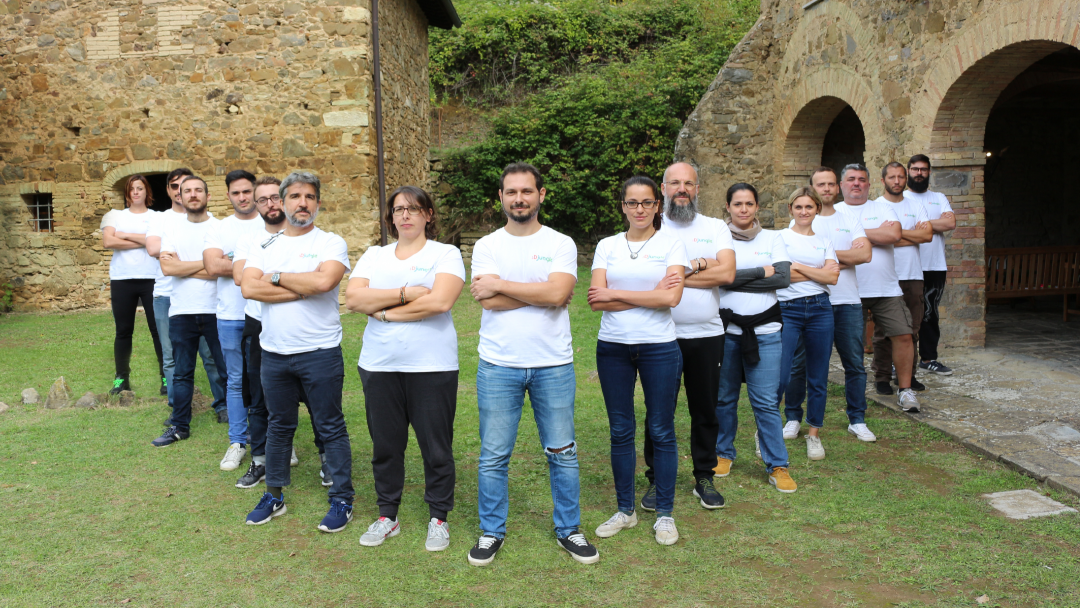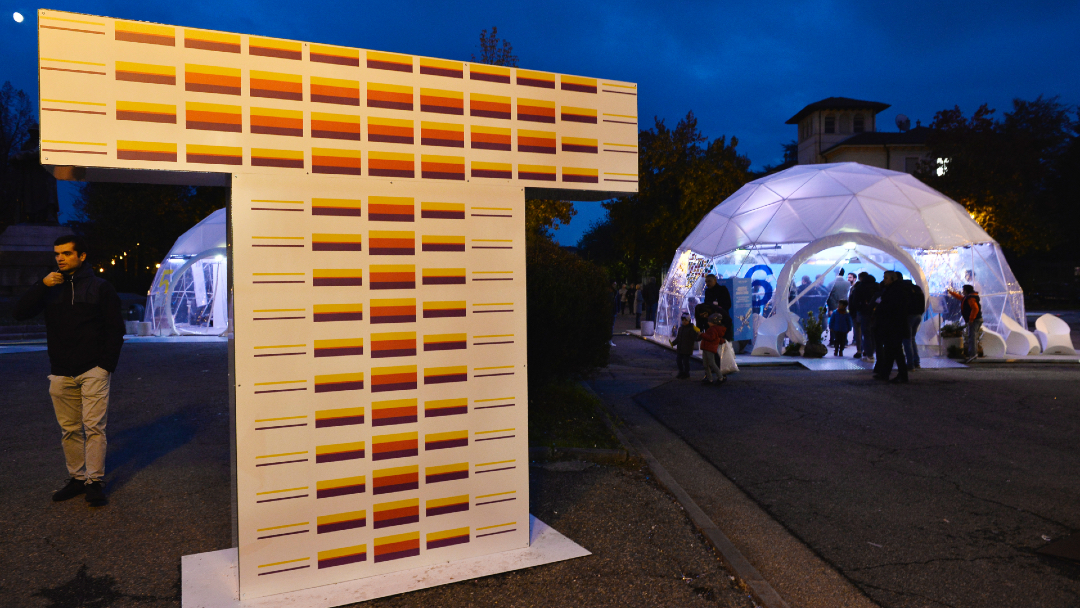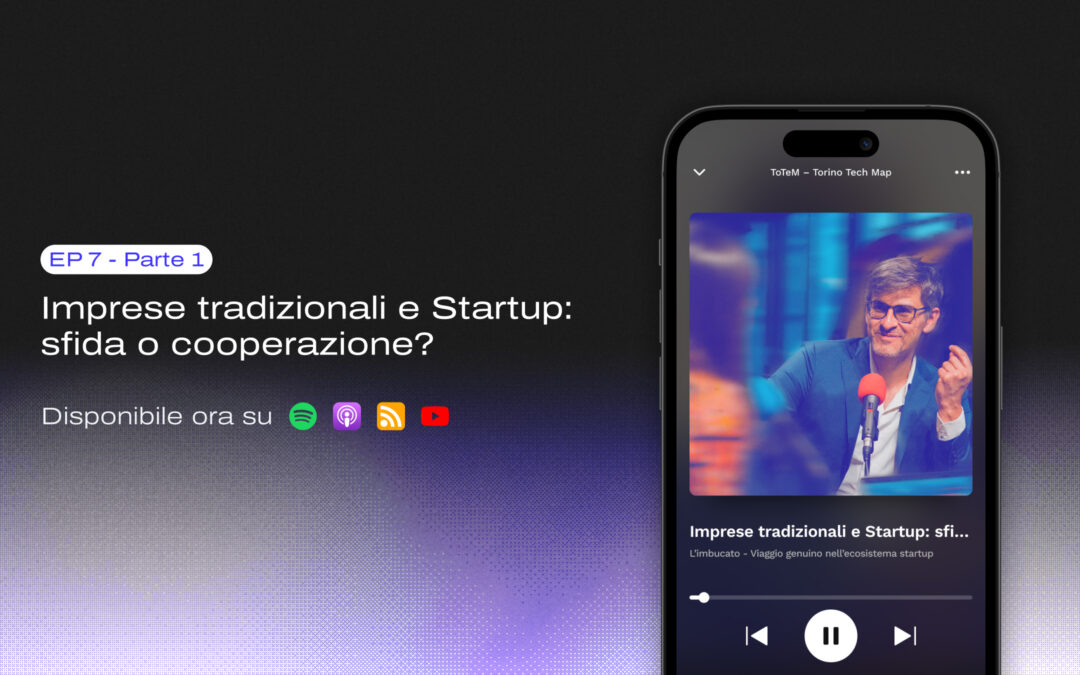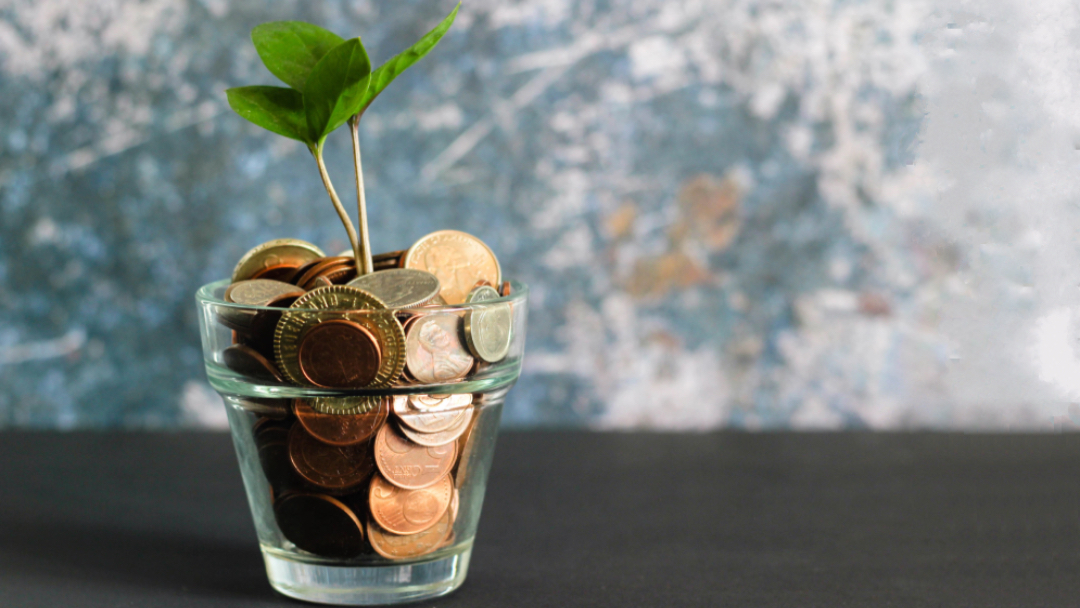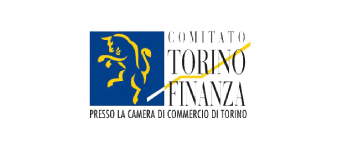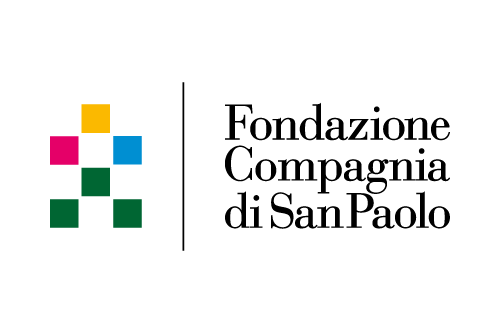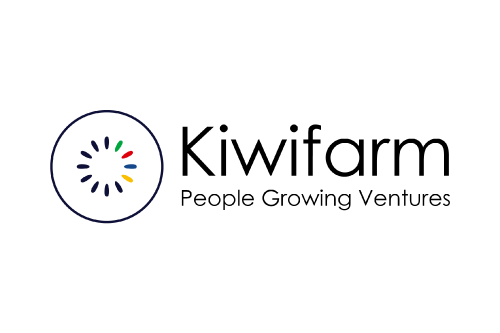
Djungle , founded in 2017 with the goal of bringing innovation to the retail sector by rethinking customer loyalty and introducing gamification and big data, Djungle has quickly achieved important results and has worked with well-known brands such as Flying Tiger of which it is still a partner. The evolution is rapid and continuous and Djungle stands out for its experience and originality in creating customer engagement. After 3 years and going from 0€ to 1M of turnover, a new project is being launched that will transform it into "Djungle Studio", a start-up engine dedicated to the discovery and validation of business opportunities on b2c communities.
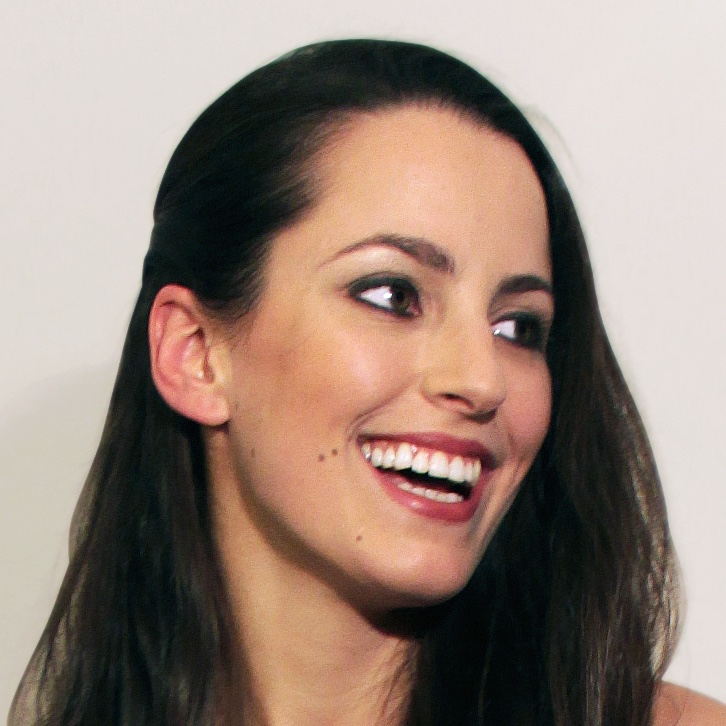
Giulietta Testa
CEO & Co-founder
She graduated in journalism and studied violin, over the years she has worked in communication, business consulting and software development management. Passionate about technology and gamification, in 2017 she founded Djungle, a tech company dedicated to customer engagement of which she is the CEO.
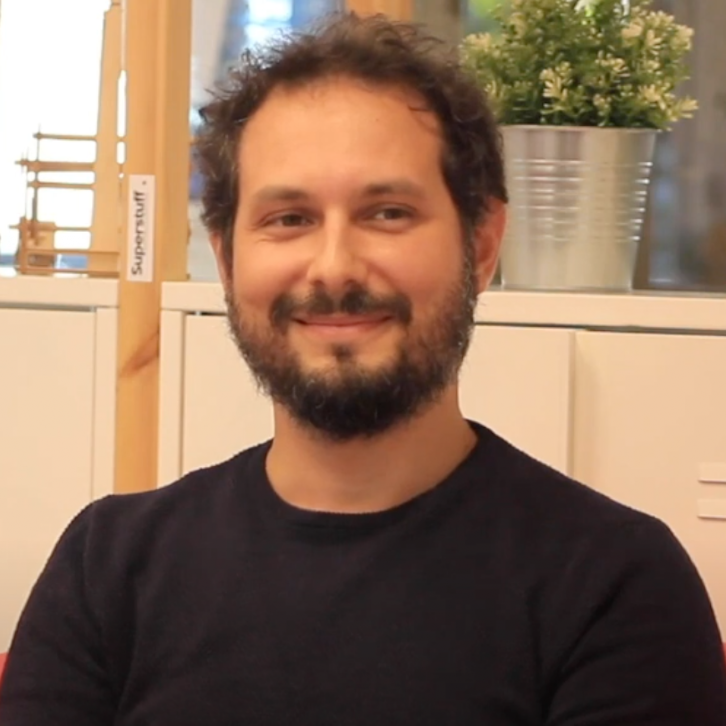
Alessandro Nasi
Co-founder
Many entrepreneurial experiences have allowed him to know the corporate world, that of public administration and that of startups. Today as co-founder of Djungle, he wants to make a difference in the digital world in Italy and propose a new way of innovating.
At the center of Djungle's activities there is often gamification, can you apply this concept at work? Do you think that fun is an important aspect of the work environment?
Alessandro: Absolutely yes, for us gamification is one of the most important things. In the team, keeping a high level of fun is a fundamental part of Djungle, fun is a better way to stimulate creativity. In order to develop truly innovative projects that aim to be disruptive, you need to be able to enjoy creativity constantly and fun is a great source of new ideas.
Giulietta: In the last months our team has grown a lot and to maintain the spirit of the group we have established a serious rituals, such as DjungleDay or Planning, or activities such as the Delegation Game, and a series of processes and moments of confrontation with the team to discuss about elements of the company through fun activities capable of creating moments of sharing and strengthening individual connections between members. In this time strongly influenced by smartworking, we have gladly noticed that the group is still very united and everyone is fully in the Djungle spirit.
In this complex year you have managed to grow a lot from the team's point of view, what is the distinguishing feature of a Djungle member?
Giulietta: Before the lockdown there were 7 of us, today there are 18 of us working full-time at Djungle. In addition to specific skills, we are always looking for the Djungle component, i.e. the personal characteristic that is not clearly defined but is collectively recognized in a natural way. "She/He is Djungle" is the expression that comes naturally to us when we identify a person who fully reflects the spirit of the company.
Alessandro: To explain the Djungle factor, I would use a similarity with the world of music. Many bands over the years have radically changed their style and way of making music, yet you can always tell who is Rock and will continue to be Rock. It's hard to explain, but it's immediate to understand. To understand who is Djungle and who is not, for us it is comparable to that kind of feeling.
Who is more Djungle between the two of you?
Alessandro: We are all Djungle!
Giulietta: Djungle is the union of everyone, it is composed of all the differences and energies that blend together.
As Djungle, do you feel more like a startup or a software house?
Alessandro: We feel that we are much more a startup. The software development component is an asset that allows us to create digital products, but it is not our ultimate goal. Our mission is to develop products that have a positive impact on our customers and end users to change the way they interact with technology.
Giulietta: The concept of software house is very much linked to external contract work, but we have a focus mainly on the development of internal projects. We have customers and partnerships for various projects, but our main perspective remains the development of internal products aimed at the end user.
Often we compare the startup model with that of traditional companies, can these two worlds come together to create synergies?
Alessandro: This is perhaps our main battle. I believe that the collaboration between these different subjects can work, but both need to take steps towards each other in order to understand each other. Consolidated companies need innovation in order to maintain their position in the market, especially today when competition is increasingly high and international. Having already been established in the market for years and having validated and structured many processes, change is more difficult for them. The change starts mainly from a mentality, you have to realize that it is necessary and that it means changing what you have always done and that it has worked so far. So you have to loosen your internal clutch and open up to the outside to be able to collaborate with companies that have no brakes. A startup has no processes, it has a mentality totally aimed at change and is much more free. In order to get in touch with a startup, a traditional company must be ready to delegate part of the decision-making power to allow it to build something new. The word "Innovation" just means "do something new", so it is essential to be able to do something you haven't done before.
Have you noticed, when you approached a more traditional client, a greater difficulty in communicating and proposing some solutions that might be more interesting?
Giulietta: I believe that another point beyond that of delegation, is to be able to create rules-free zones, because the needs are different. For example Costa Crociere will have a series of very structured procedures that must work for a ship of that size, while a small motorboat that goes on excursions cannot have the same rules. This concept, which seems normal, is exactly what a large company that wants to innovate must then put into practice. That is, to allow the small motorboat that drives innovation to be lightened by a whole series of rules and procedures.
Alessandro: On the same metaphor I would add that the company must be willing to lose the small motorboat, meaning the failure of the operation. The sum of the failures leads to a better knowledge of the market, and it is precisely this willingness to fail that is hard for the most traditional companies to understand.
Giulietta: In fact, we never think in terms of large investments, but in many small investments, better ten projects with a small budget than one project with a budget ten times larger. This allows us to collect much more information.
Alessandro said that you identify more in a startup, because one of your mission is to develop products that can have an impact, the impact is a concept that is used by startuppers when they present their projects, what does impact mean and what is the impact that you would like to have on the world or in the lives of your customers?
Alessandro: The companies we serve have a very high workload and with the services we offer, we want to have a positive impact that allows them to free themselves from an additional burden of worries, so to have someone who thinks about offering a quality service, solving a problem for them.
One of your pillars is gamification, what it is and how can you apply it to a city or ecosystem to make it work even better?
Alessandro: Gamification is a means to enhance an existing service that has to work itself, there is no point in enhancing something that works badly. We have already had experience for a year applying gamification to a city environment and the engagement component on citizens has had a positive impact on each service. It has proved to be a way to increase loyalty and attachment to a service that, however, was already working. All our engagement projects are based on a framework called Octalysis: one of the underlying concepts is to align the objectives of all users to strengthen their interaction towards a single collective goal.
Giulietta: Yes, one of the concepts we often emphasize, even at the mindset level, is to focus on expanding the cake rather than having a finite cake to share. In this way, you can paradoxically make one of your competitors become one of your collaborators for a bigger cake to share. It's not very easy, I see it as the very challenge of innovation where you have to accept that some of your progress will inevitably become the progress of others.
Would you like to give a piece of advice for a young person who wishes to take an entrepreneurial path?
Alessandro: This is a question that I have also asked to many people inside Djungle: if you had infinite money and I came to you asking "How much money do you want and why?" what would you say? Almost everyone focuses on the amount (1 million, 10 million), but as soon as you say the amount, you have limited the capacity of your dreams, actually the question you need to know how to answer is "why". If a guy wants to be an entrepreneur he must be prepared on "what he wants to build, what makes him feel good, what he wants on the planet that is not here today", money is not a problem, it is just the gasoline to get to that goal, but he must be aware of the goal and not the search for money.
Giulietta: I would recommend seeing the movie Big Fish. In my opinion, that film conveys the fact that reality is not objective, but it is what you want to see. This is fundamental because it also makes you understand that it is not a matter of blaming something external and " evil", but it is a matter of committing yourself to become better and better at taking responsibility for what surrounds you, knowing that everything depends on you.
